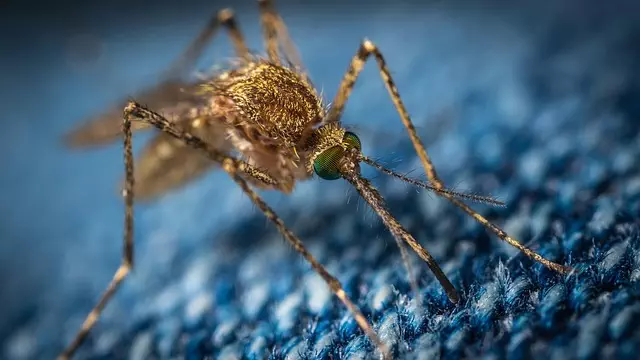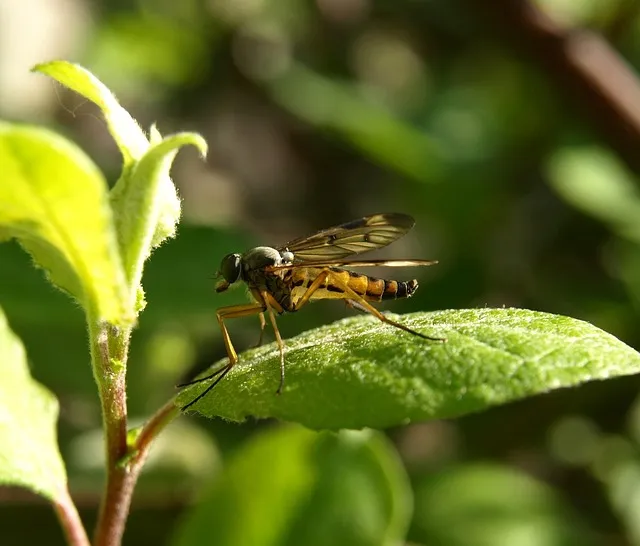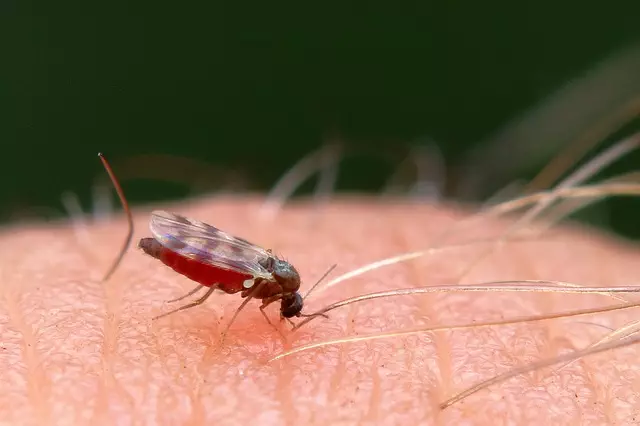Mosquitoes are complex pests with significant impacts on disease transmission and human health. Their breeding patterns and behavior necessitate a comprehensive mosquito control strategy, involving both adult and larval management. Modern integrated methods, combining biological, chemical, structural, and behavioral controls, offer sustainable solutions. Technology like sensors, drones, genetic engineering, and AI-driven data analysis enhance precision and minimize environmental impact. Eco-conscious homeowners embrace strategies like eliminating standing water, using natural repellents, and employing predators. Professional pest control services leverage specialized knowledge and tools for targeted treatments, larviciding, and ongoing monitoring. Proactive measures by homeowners, such as draining water sources, maintaining vegetation, and using repellents, significantly reduce mosquito populations. Community collaboration through integrated pest management (IPM), education, and promotion of natural solutions are vital for sustained mosquito control efforts.
Mosquitoes are more than just a nuisance; they pose significant health risks, impacting residential areas with diseases and discomfort. Understanding their behavior and breeding patterns is key to effective mosquito control. This article explores various strategies for managing these pests, from traditional methods to modern technology and environmental-friendly approaches. Learn about the role of professional services and a homeowner’s action plan, plus community efforts necessary for sustained mosquito control. Discover the best repellents and traps while navigating the complex landscape of mosquito prevention.
Understanding Mosquitoes: Behavior and Breeding Patterns

Mosquitoes are more than just a nuisance; they’re a complex pest with distinct behaviors and breeding patterns that play a crucial role in their ability to transmit diseases. Understanding these patterns is essential for effective mosquito control. Adult mosquitoes typically live for 1-2 weeks, during which time they feed on blood to produce eggs. They are primarily attracted to carbon dioxide, heat, and certain chemicals produced by our bodies, making them more active around humans during dawn and dusk.
Female mosquitoes require a blood meal to reproduce, laying their eggs in standing water—as little as a quarter inch deep—such as buckets, flower pots, or even small puddles. These breeding grounds can be found both indoors and outdoors, highlighting the need for comprehensive mosquito control strategies that target both adult mosquitoes and their larval habitats. By disrupting these behaviors and breeding patterns, communities can significantly reduce mosquito populations and the risks associated with mosquito-borne diseases.
The Impact of Mosquitoes on Residential Areas

In residential areas, mosquitoes pose more than just an annoyance; they can significantly impact the overall quality of life. These insects are not only a nuisance during outdoor activities but also carry and transmit various diseases, posing potential health risks to communities. With their ability to breed rapidly in stagnant water, mosquito populations can quickly grow out of control, especially in urban settings with numerous water sources and dense vegetation.
The presence of mosquitoes in residential areas can disrupt daily routines and even affect property values. Homeowners often find themselves spending more time indoors due to the fear of bites, limiting outdoor entertainment and exercise. Effective mosquito control becomes essential for creating a comfortable and healthy living environment. Implementing strategies such as eliminating standing water, using insect repellents, and installing screens or fans can significantly reduce mosquito activity, ensuring residents can enjoy their outdoor spaces once again.
Traditional Mosquito Control Methods

Mosquito control has evolved significantly over time, from traditional methods to modern technological advancements. Historically, getting rid of mosquitoes involved practices like manual removal through swatting or netting, which offered only temporary relief. Chemical-based solutions, such as aerosol sprays and insecticides, were commonly used but had limited effectiveness and could be harmful to the environment and non-target species. These traditional mosquito control methods often relied on chemical applications in large areas, aiming to kill adult mosquitoes, their larvae, or both.
While these conventional techniques might have provided short-term solutions, they didn’t address the complex ecological factors that contribute to mosquito breeding and populations. As a result, professionals now emphasize integrated mosquito management (IMM), which involves a combination of biological, chemical, structural, and behavioral controls tailored to specific environments. This approach ensures more sustainable mosquito control while minimizing potential risks to human health and the ecosystem.
Modern Technology in Mosquito Management

Modern technology has revolutionized mosquito control, providing innovative solutions for both homeowners and municipalities. One such advancement is the use of smart sensors and drones equipped with advanced cameras and AI algorithms. These tools can detect and track mosquito populations in real-time, identifying breeding grounds and hot spots more accurately than ever before. This data-driven approach allows for targeted treatments, reducing the need for widespread pesticide applications.
Additionally, genetic engineering and biological controls are gaining traction as eco-friendly Mosquito Control methods. Scientists are developing genetically modified mosquitoes that reproduce but produce offspring incapable of spreading diseases. Similarly, introducing natural predators like fish or birds into stagnant water bodies can help suppress mosquito breeding, offering a sustainable and chemical-free alternative to traditional mosquito control measures.
Environmental-Friendly Approaches to Mosquito Control

Many modern homeowners are opting for environmental-friendly approaches to mosquito control, recognizing the importance of preserving local ecosystems. Instead of relying heavily on chemical sprays, which can have detrimental effects on non-target species and the environment, these methods focus on creating an inhospitable environment for mosquitoes while minimizing ecological disruption.
One such approach involves eliminating standing water, as mosquitoes breed in stagnant water sources. Regularly emptying flowerpots, birdbaths, and other containers, as well as ensuring proper drainage around the home, significantly reduces mosquito breeding grounds. Additionally, planting mosquito-repelling plants like citronella, lavender, and marigolds can help deter these pests naturally. Other eco-friendly tactics include using strategic landscaping to reduce moisture retention and employing beneficial insects, such as dragonflies and damselflies, which feed on mosquitoes.
Role of Professional Pest Control Services

Professional pest control services play a pivotal role in effective mosquito control, offering specialized knowledge and tools to combat these persistent pests. These experts employ advanced techniques such as targeted treatments, residual insecticides, and larviciding to disrupt mosquito breeding cycles and reduce their population. By understanding habitat preferences and behavior patterns, professionals can pinpoint hot spots where mosquitoes thrive, ensuring more precise and efficient applications of control measures.
Moreover, they provide ongoing monitoring and maintenance programs tailored to specific regions and climates, proactively addressing emerging threats. This comprehensive approach not only reduces the risk of mosquito-borne diseases but also minimizes environmental impact by using eco-friendly products and practices. Engaging professional pest control is a strategic move for homeowners seeking long-lasting relief from mosquito infestations.
Homeowner's Action Plan: Preventing Mosquito Infestations

As homeowners, we all want our outdoor spaces to be mosquito-free and enjoyable. Preventing mosquito infestations is a crucial part of effective mosquito control. Start by eliminating standing water around your property—mosquitoes breed in stagnant water, so remove items like old tires, buckets, or flower pots that can collect water. Keep gutters clean and ensure proper drainage throughout your yard. Regularly empty birdbaths and other water features, and consider installing mosquito-breeding plant varieties that are less attractive to these pests.
Additionally, maintain a dense landscape to reduce areas where mosquitoes can rest and breed. Trim back overgrown vegetation and keep your lawn mowed short. Use insect repellents when spending time outdoors, and install mosquito traps or nets for added protection. Taking these proactive steps will significantly contribute to a more comfortable and mosquito-free outdoor environment.
Effective Mosquito Repellents and Traps

Mosquito control is a multifaceted approach, and one of the most effective tools in your arsenal is a good repellent or trap. There are numerous options available, each with its strengths and weaknesses. Natural repellents like citronella candles and plants offer a pleasant scent-based solution, but their effectiveness can vary. On the other hand, chemical repellents containing DEET have been proven to deter mosquitoes over longer periods, making them ideal for outdoor activities.
For trapping mosquitoes, options range from simple water-filled containers with BOT (Bactrocera odonata) attractants to sophisticated electric grids. The former lures and traps mosquitoes naturally, while the latter uses a small electrical charge to kill them. Each method has its advantages; for instance, electric grids are more efficient but may require more maintenance. Choosing the right repellent or trap depends on your specific needs, environmental factors, and preferences for chemical versus natural solutions.
Community Efforts for Sustained Mosquito Control

Community efforts play a pivotal role in sustained mosquito control, complementing professional treatments for maximum effectiveness. By fostering collaboration among residents, local governments, and environmental agencies, communities can implement integrated pest management (IPM) strategies that target mosquitoes at various stages of their life cycle. This collaborative approach involves several key initiatives. First, community education programs raise awareness about mosquito habitats and breeding grounds, empowering residents to take proactive steps like eliminating standing water around homes and maintaining proper yard drainage. Second, collaborative efforts facilitate the monitoring and reporting of mosquito activity and potential disease outbreaks, enabling swift action and resource allocation. Lastly, combined initiatives can promote the use of natural predators like fish and birds, as well as plant-based repellents, to create a more balanced and eco-friendly mosquito control ecosystem.
